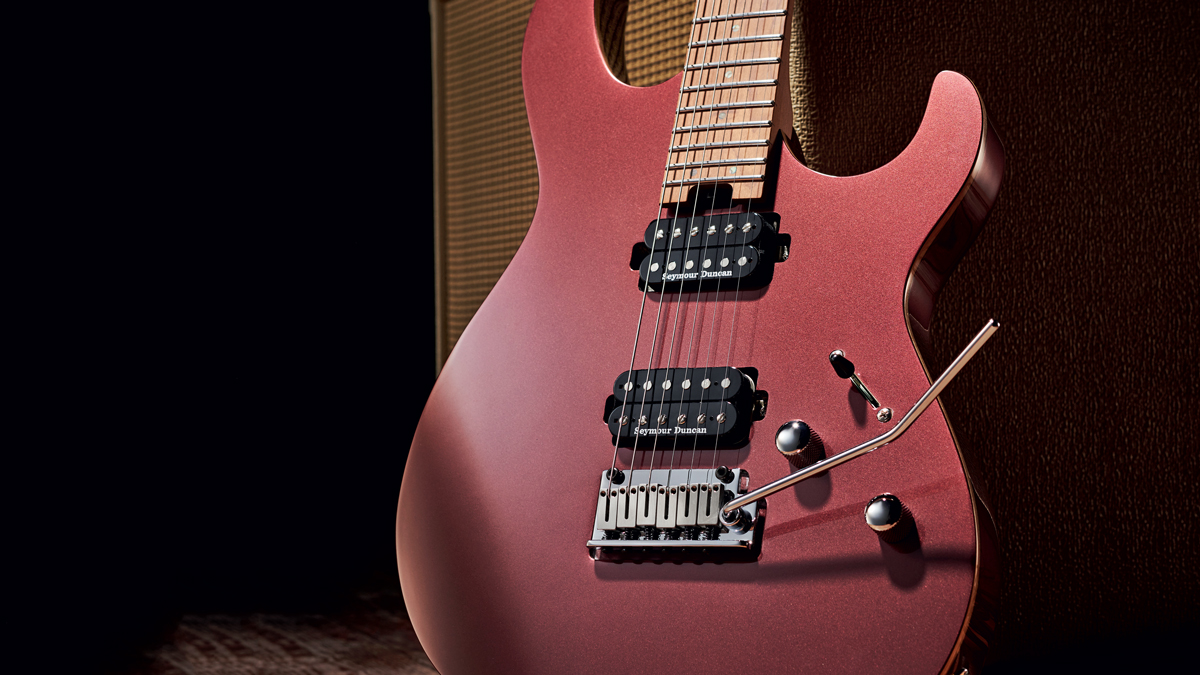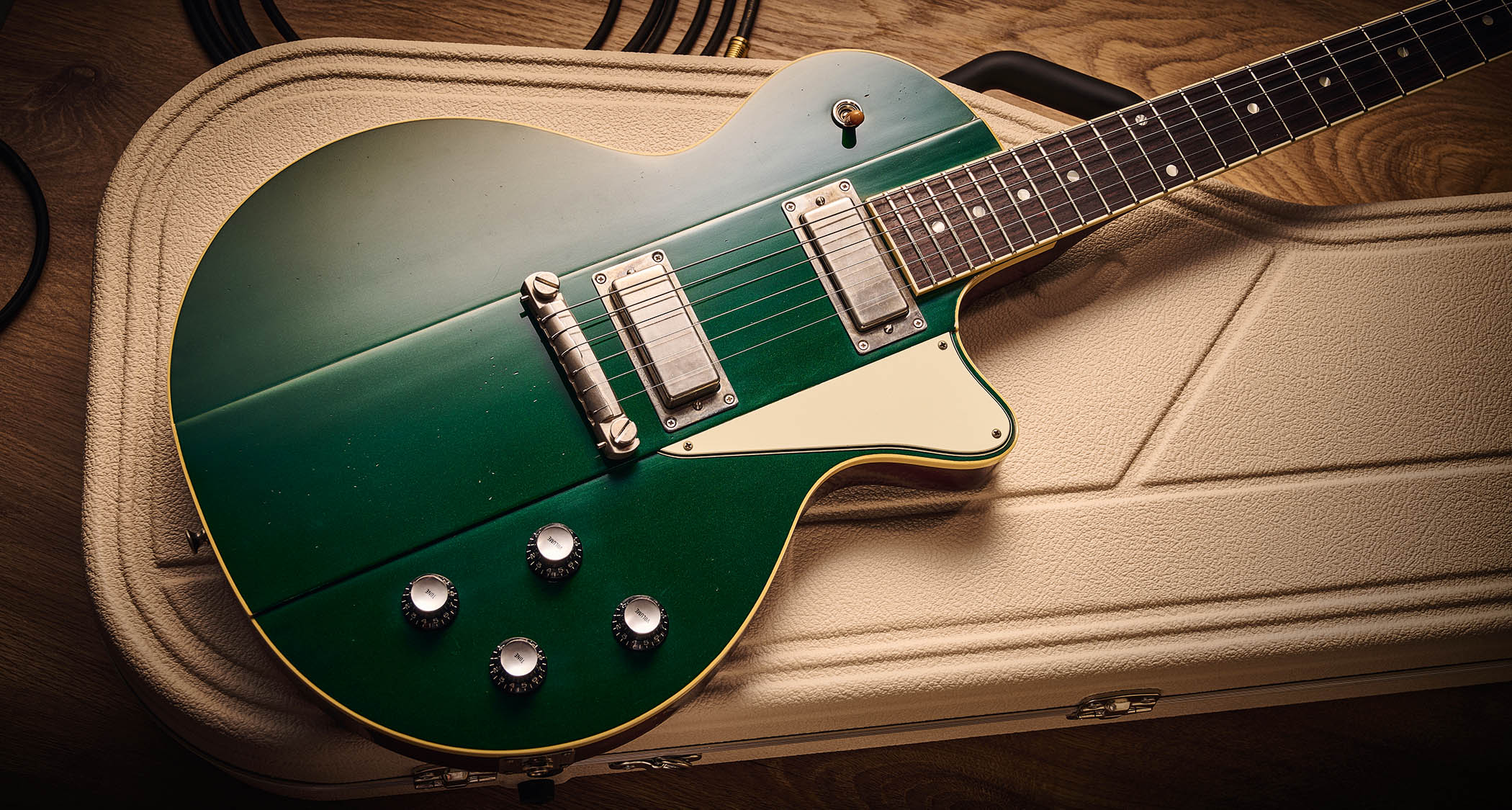Guitar World Verdict
A do-it-all electric for under a grand that is typical of Cor-Tek's exacting build quality, the G300 Pro is both a throwback to hot-rodded S-styles of yore and a grown-up build for today's player.
Pros
- +
Superb feature-led build for the money.
- +
Roasted maple neck, stainless-steel frets.
- +
Seymour Duncan pickups.
Cons
- -
Colour choice isn’t great and there’s no gigbag. But do we care?
You can trust Guitar World
If you’re serious about your electric guitars, you’ll know that Cor-Tek produces instruments for numerous brands in its Indonesian super-factory.
Not everyone wants to shout about that, of course, but plenty do, not least Manson Guitar Works here in the UK and Relish in Switzerland. PRS is also happy to praise its relationship with Cor-Tek in making its SE electric line – we recently gave the Cor-Tek-made PRS SE Custom 24-08 a five-star review.
Cor-Tek’s own brand, Cort, predates this huge Indonesian facility, and here we’ve snagged one of the first of its new 2021 G Series models.
The G300 Pro is the new flagship model and tops the mini-range, which starts at £279 with the G250. The price doesn’t include a gigbag and the cardboard shipping box doesn’t exactly suggest the quality of the instrument inside. The thing is, however, this new G300 Pro is a hugely feature-led slice of modern guitar craft, the sort of instrument that covers a lot of ground without overly suggesting a specific genre or style.
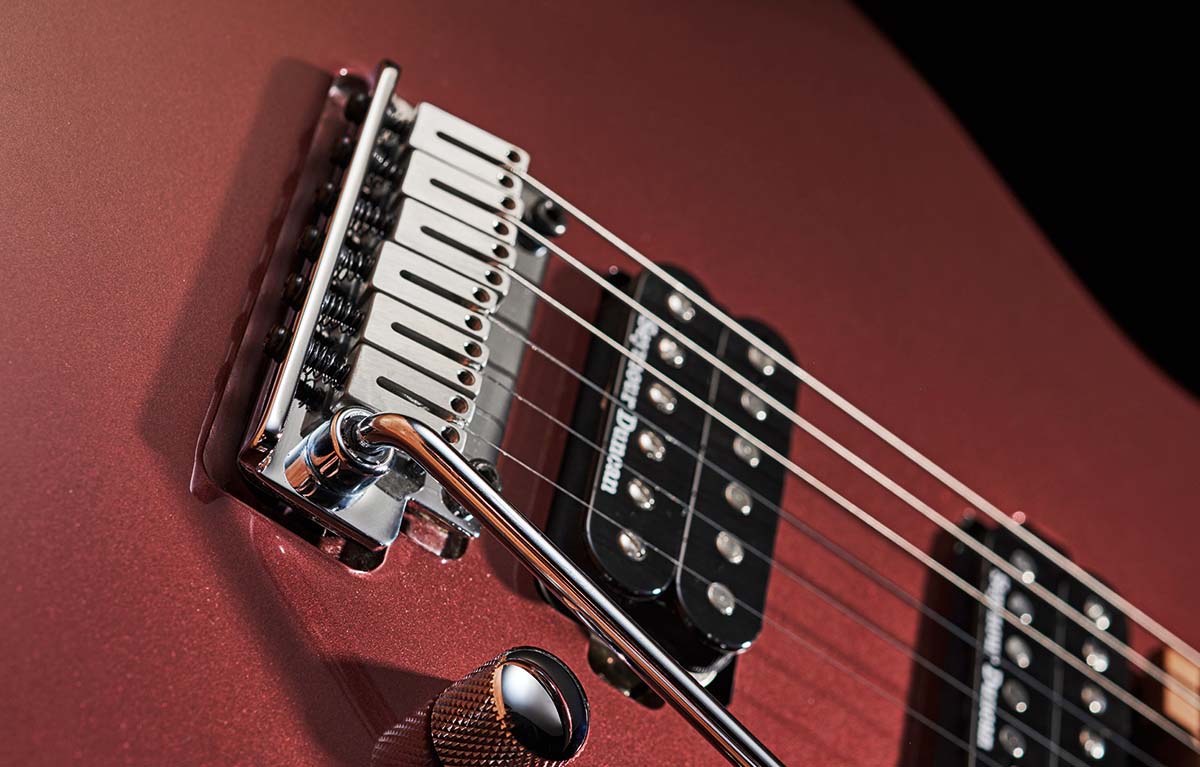
Admittedly, there’s plenty that puts it in the ‘modern progressive’ piegeonhole if you listen to guitars from their specification sheets. We have a compound radius fingerboard, big ol’ stainless-steel frets and those see-in-the-dark Luminlay side dots that are essential for prog-rockers and their sparsely lit performance spaces.
Back in the day we’d have called this a ‘SuperStrat’, pure and simple. Like Eddie Van Halen’s first Music Man signature, the body under that slightly metallic opaque finish is American basswood, with a 6mm maple top and its edges left natural.
Its slightly elongated Strat-inspired outline hardly brings any new concepts to the fray, but the ribcage and forearm contours – not to mention the rounded neck heel with inset neck screws – all aid the form. It really doesn’t get in your way and, with a good light weight, feels great strapped on or seated.
All the latest guitar news, interviews, lessons, reviews, deals and more, direct to your inbox!
The vibrato here is based closely on Gotoh’s modern classic 510 and has a machined-steel block, steel baseplate and block stainless-steel saddles with two pivot posts and push-in arm with tension adjustment at the collar. It appears to be set flush with the top of the body until you notice the recess.
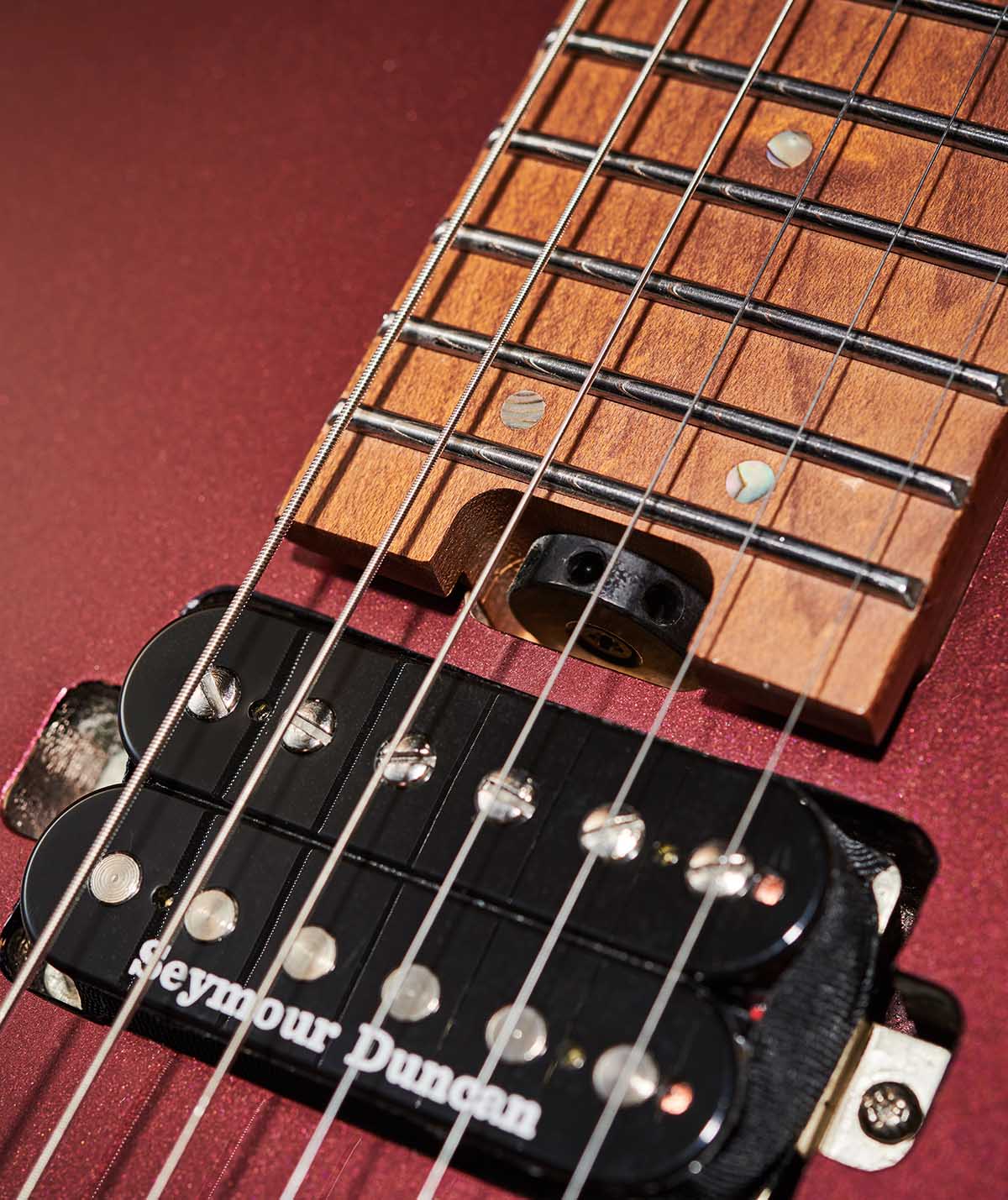
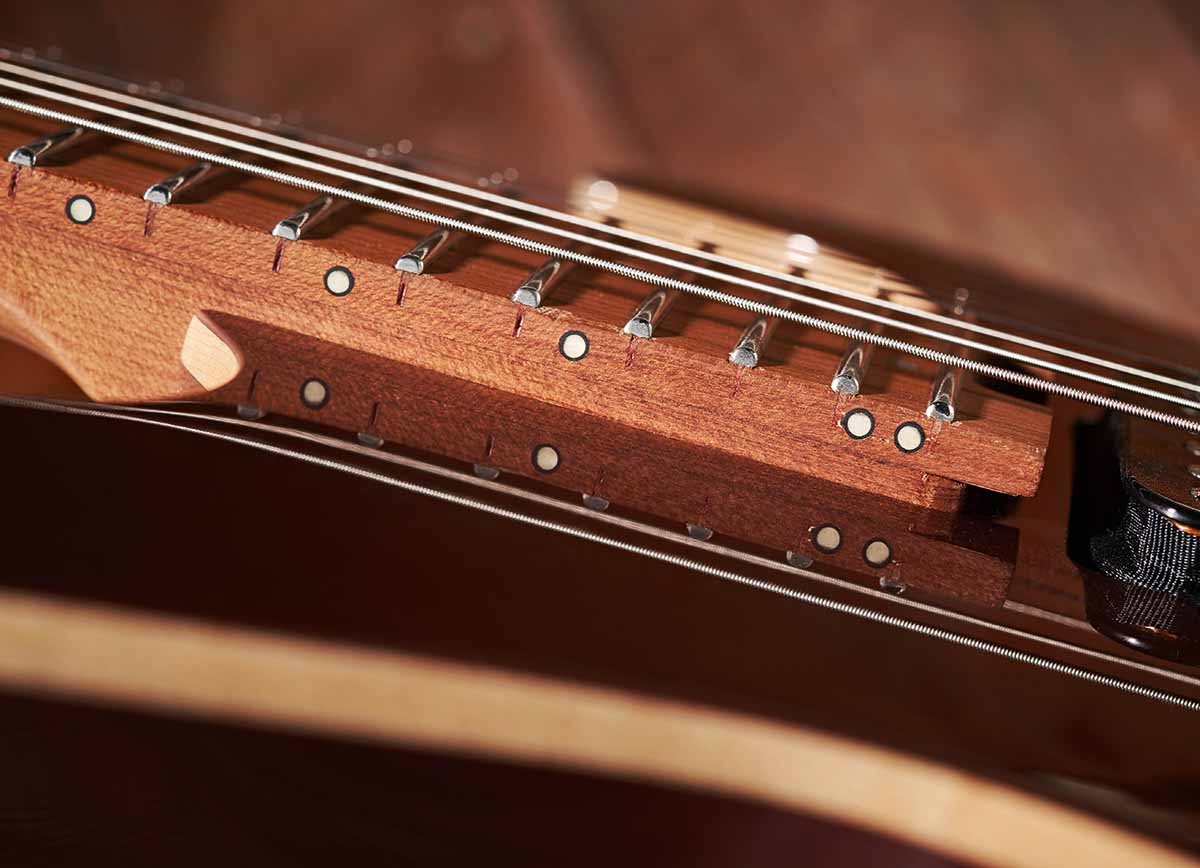
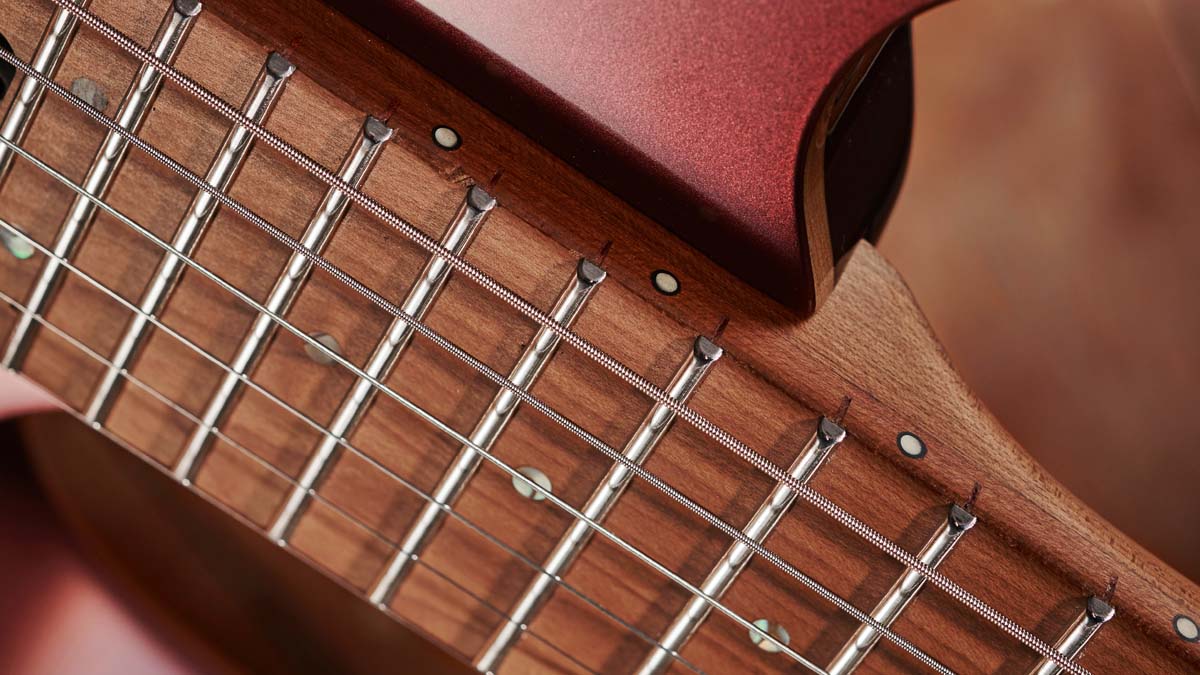
This doesn’t actually increase the up-bend over a similar vibrato with a Fender-style tilt, so when set with just two springs, it has a light feel and we get a minor 3rd on the G and a semitone on the high E, while down bend is pretty much to slack.
What we will say, though, is that tuning stability is superb right out of the box – we didn’t even stretch the strings. The tuners are rear-locking and have staggered posts (three different heights), and the Graph Tech black Tusq nut is clearly doing its job. But Cort could probably do with a PR person who understands the history of the electric guitar.
The Seymour Duncan TB4 and SH-2 humbucker set doesn’t mean much unless you know your product codes. We have what Duncan calls its ‘Hot Rodded’ set: “Seymour created this classic humbucker combination while in England in 1974, and it remains his favourite set of pickups to this day – an SH-4 JB for the bridge and SH-2n Jazz Model for the neck. Together these pickups have become one of the most timeless and versatile humbucker sets ever built.”
Both appear to be direct-mounted, but they actually sit on foam so you can tweak the pickup heights if you need to.
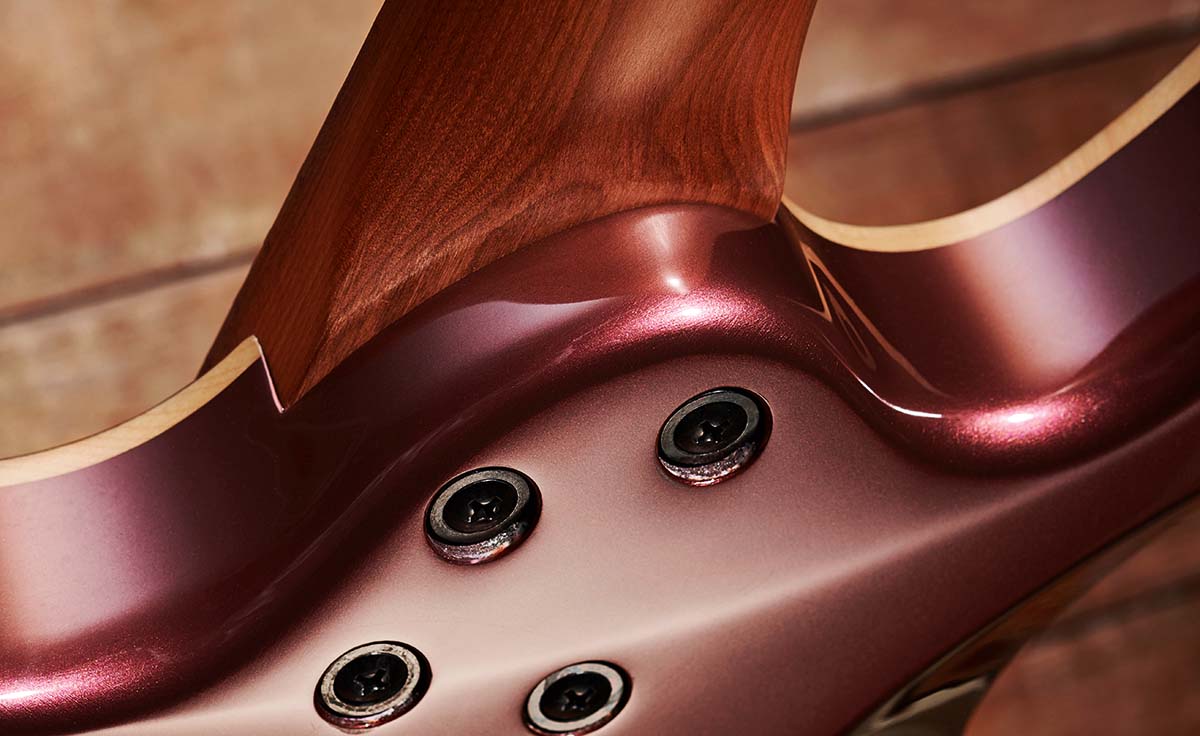
Feel & Sounds
If the neck specification suggests a certain style, then the actual neck here is really quite full and feels quite ‘old Fender’ if we’re honest. It has a slim but not skinny depth in the lower positions, measuring 21.6mm at the 1st fret, and a D-style profile with quite full shoulders, filling out to almost old-Tele dimensions by the 12th at 24mm.
The satin neck back will undoubtedly burnish to a low gloss with playing, but you can’t help thinking a quick rub with a Scotch-Brite pad at the factory would just break it in a bit for a slightly slinkier feel. The fingerboard edges are slightly rounded and, despite the apparently ‘flat’ fingerboard camber, it feels quite mainstream.
The stainless-steel frets could fit into the narrow/tall category, too: they’re nicely installed, although a little more polishing of the tops would prevent the slightly scratchy feel as you bend, especially on the wound strings. It’s just a few minutes away from turning good into exceptional.
Overall, the supplied setup is flawless and low – pretty much 1.3mm on both treble and bass sides, as supplied. To be honest, that’s a little low for us, and raising the string heights to 1.6mm on both sides at the 12th fret felt a bit more universal and gave the strings attack less snap and more air. Like the rest of the design, the drive is simple and really doesn’t get in the way.
There are plenty of ways you can wire a pair of four-conductor humbuckers and here we get (from positions 1 to 5): bridge humbucker; screw single coils of both in parallel; both humbuckers; slug single coils of both in parallel; and neck humbucker. It certainly covers a lot of ground. The circuit is simple with 500k Alpha Korean mini pots and a four-pole, five-way switch with a .033 microfarads tone cap.
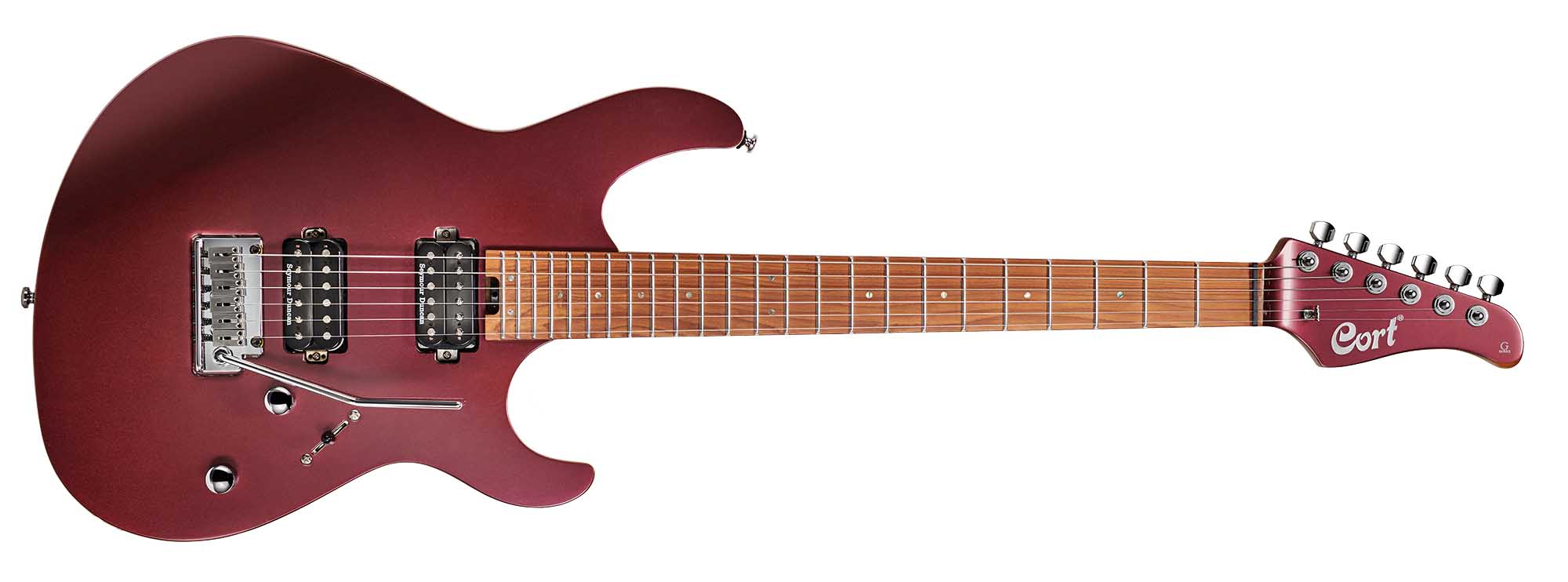
Now, you could probably have a career on the back pickup alone. The JB is a real classic, hot with a big thumping midrange bark, quite the antidote to the ‘wimpy’ PAF. Pull the volume back and it can get a little indistinct, but if you’re running into a crisp, gained amp voicing that’s little problem.
That said, a simple treble-bleed circuit would be an easy and cheap upgrade. But there’s plenty more to explore here and both parallel mixes not only thin out the voice but add Fender-y funk and bounce.
The wide-spaced screw coils sound a little more ‘Tele’, the closer slugs coil hints more at a Strat’s mix, while the more scooped Jazz at the neck is almost a halfway between those and the JB’s thickness.
And just like the JB, the Jazz has a useful voice, clean enough for almost single-coil-like clarity on those soupy leads and snappy enough for some funkier blues/jazz comping with clean and crunch amp voices. The dual humbucker mix is perhaps less suited to gained sounds but is surprisingly wide and full with a little snappy clarity on cleaner amp settings.
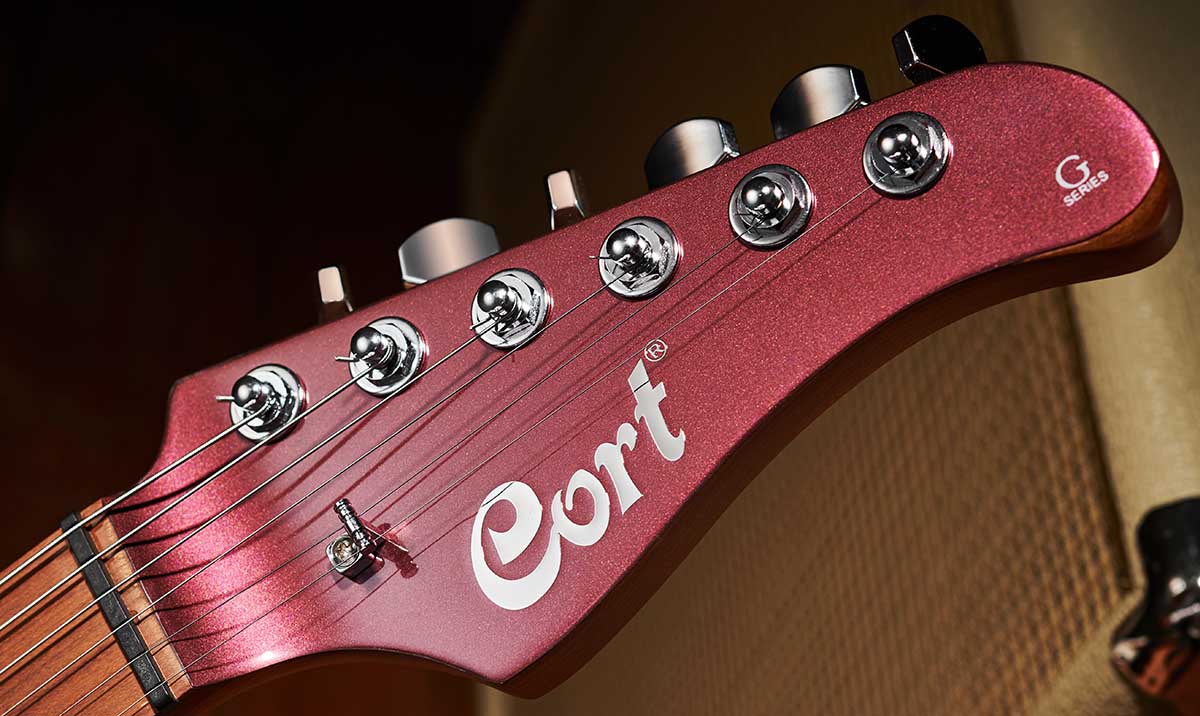
Verdict
“I think I need a Cort” are probably not words you’ve uttered – unless you’re a Matt Bellamy fan, of course. That said, you’ve probably played one (at least in terms of where it was made), possibly without even knowing it because not every brand is like PRS who happily credits Cor-Tek for its excellent SE builds.
In a different modern bolt-on style, the G300 Pro is a difficult guitar to fault – it’s the sort of instrument that spans pretty much every rock genre there is and quite a bit more, although it does veer towards generic in style. Parts of the market may care that this guitar lacks history, isn’t retro nor based on an instrument designed in the 1950s.
But don’t for a moment think it isn’t fit for purpose: it’s a real everyman instrument that could sit in a modern metal band just as easily as a function pop/soul ensemble. In fact, for those stylistically diverse wedding/function setlists, we doubt you’d need more.
Specs
- PRICE: $1,199 / £749
- ORIGIN: Indonesia
- TYPE: Offset double-cutaway solid body electric guitar
- BODY: Basswood w/ 6mm maple top
- NECK: Roasted maple, bolt-on
- SCALE LENGTH: 648mm (25.5”) NUT/WIDTH: Graph Tech Black Tusq/42.13mm
- FINGERBOARD: Roasted maple, 305-406mm (12-16”) radius
- FRETS: 24, jumbo stainless steel
- HARDWARE: Chrome-plated Cort CFA-III 2-post 6-saddle vibrato with push-in arm, Cort staggered-post rear locking tuners
- STRING SPACING, BRIDGE: 52.5mm
- ELECTRICS: Seymour Duncan JB (TB4, bridge) and Jazz (SH24, neck) direct mount humbuckers, 5-way lever pickup selector switch, master volume, master tone,
- WEIGHT (kg/lb): 3.47/7.6 OPTIONS: None
- RANGE OPTIONS: The swamp ash/figured maple-topped G290 FAT ($849 / £599) is recommended with versatile twin VTH-77 covered humbuckers. The new alder/figured maple G280 (£579) goes for an HSS configuration. Both have two colour options each
- LEFT-HANDERS: No
- FINISHES: Vivid Burgundy metallic (as reviewed), Black – gloss body and headstock face, satin neck
- CONTACT: Cort

Dave Burrluck is one of the world’s most experienced guitar journalists, who started writing back in the '80s for International Musician and Recording World, co-founded The Guitar Magazine and has been the Gear Reviews Editor of Guitarist magazine for the past two decades. Along the way, Dave has been the sole author of The PRS Guitar Book and The Player's Guide to Guitar Maintenance as well as contributing to numerous other books on the electric guitar. Dave is an active gigging and recording musician and still finds time to make, repair and mod guitars, not least for Guitarist’s The Mod Squad.
